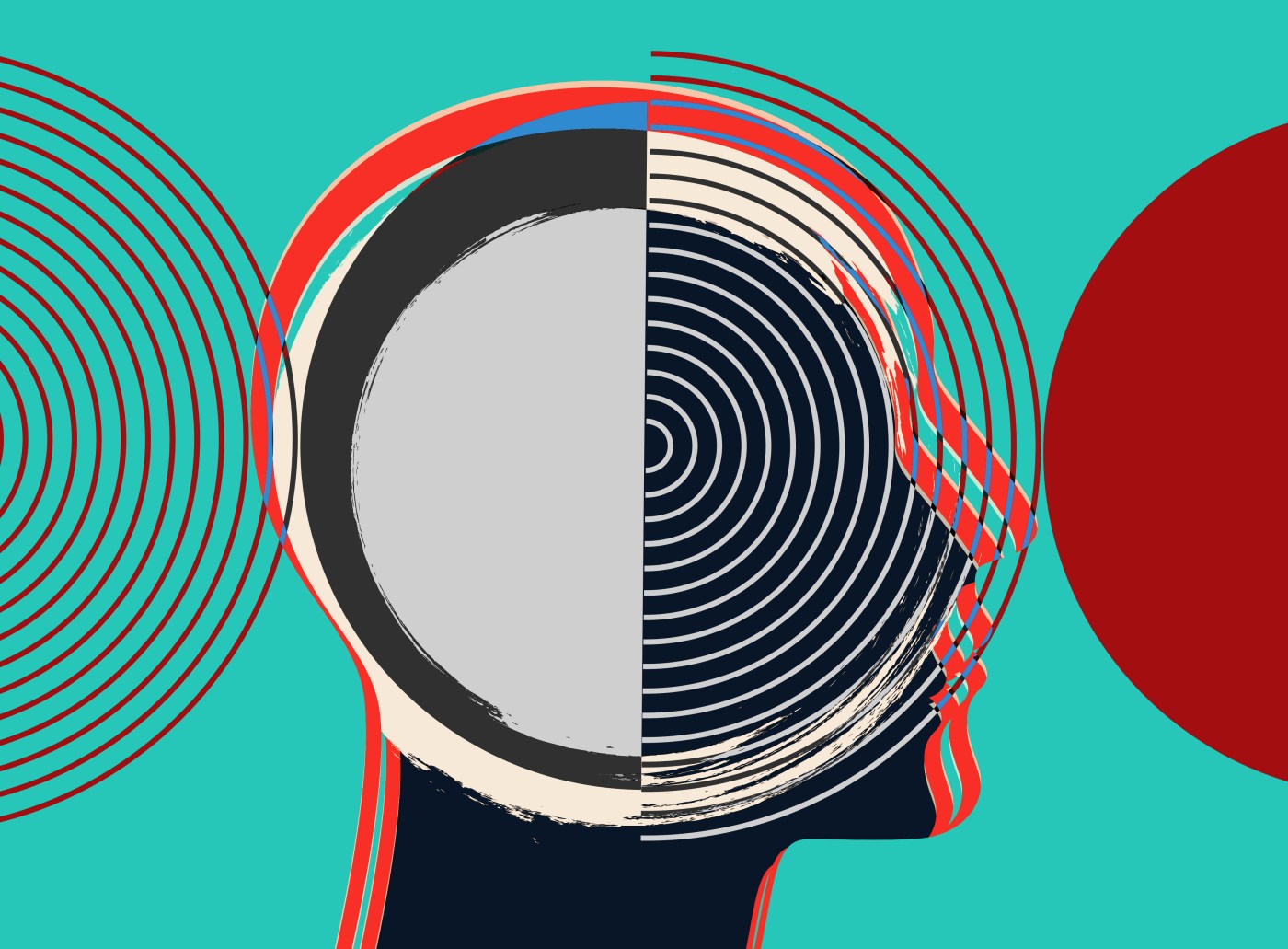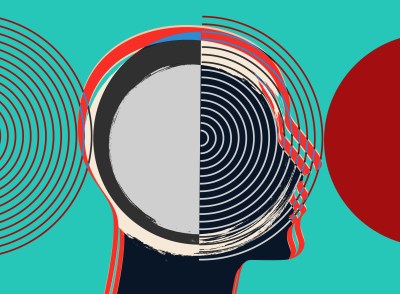Turn any article into a podcast. Upgrade now to start listening.
Premium Members can share articles with friends & family to bypass the paywall.
I mostly read The Mind Reels on the New York City subway, which is the perfect, if too on-the-nose, place to read a novel about severe mental illness and its destructive effects.
We follow Alice, an Oklahoma girl whose initial remarkable quality is that she is fundamentally unremarkable. “As a child she liked life well enough,” the author writes. Later: “She was the opposite of an unrealized genius; everyone was modestly satisfied by her performance, and not a single soul ever talked about her greater potential, even her parents.” And later: “In all things she put her head down and marched unwaveringly into the unexceptional spaces everyone had predicted she would occupy.” The picture painted is one of undisturbed, even boring placidity.
But there are still hints of what is to come. “There were footprints on her mind where no one had trod,” the author writes, somewhere around describing Alice’s adolescence. And, when Alice is about to go to college: “Her thoughts had been accelerating and she kept idly noticing this fact and then forgetting.”
And what is to come is harrowing. A seemingly typical college friendship is torpedoed when Alice becomes convinced her roommate Clara is out to betray her, even hurt her. Relations with boys go the way you’d expect when alcohol and poor impulse control—and, eventually, severe mental illness—meet. A bout of what seems like stifling, paralyzing depression is punctured by the antidepressant Effexor before ricocheting into a psychotic break: “Her self was present; it was omnipresent. She did not lose consciousness, but was bathed in it, suffocated under it, her ‘I’ growing and growing in her perception until it threatened to blot out the world.” And then comes the mental hospital. And on and on.
The book’s author, Fredrik deBoer, is mostly known for his nonfiction writing, which he mostly does on Substack and with which he opines on education, sports, culture—and severe mental illness. Sometimes he addresses it at a remove, such as when he wrote about a 9-year-old who was stabbed 30 times in Middletown, Connecticut, by a schizophrenic man. But sometimes this is written about more personally, such as when he writes about his own, often hellish-seeming, struggles with bipolar disorder.
DeBoer is a better nonfiction writer than he is a fiction writer. This is not to say he’s a bad fiction writer; The Mind Reels proceeds at a near-perfect pace, and none of Alice’s seasons of life, sane or insane, are boring or overly wrought. There are a few sections, though, where deBoer the cultural anthropologist, or perhaps deBoer the diary-keeper, transcends deBoer the novelist. For example: “But Clara was also callous, at times, guilty of the kind of clumsy meanness that’s often bred into the shy, who tend to want intimacy only on their own terms.”
This is to say that there are better novels out there, at least in general. But for a novel about one woman’s mental unraveling, it’s still quite good. And for a novel that wants to grapple with hard questions about choice, it’s probably one of the best.
Because the book is chock-full of choices. There are the obvious ones: Alice’s decision to drink copiously, smoke like a chimney, and snort cocaine like a Dyson. And then there are the boys: the beanpoles and the meatheads, some of whom are terrible and some of whom are okay and pretty much all of whom Alice sleeps with. The reader is tempted to ask: How much of this wild life contributed to Alice’s later unraveling? Perhaps those choices were factors. But again, perhaps not; it’s true that, even before Alice went from typical teenager to crazed college student, she was cutting her legs. Self-harm does not indicate that the mind that later unraveled was, in fact, fully wound in the first place.
There are other, less conspicuous choices that may or may not exist off the page. Alice’s parents seem largely reticent on the matter of mental illness; is it possible that one of Alice’s relatives had related issues, given that mental illness is at least partially heritable, and someone in the family kept quiet? Alice’s doctors also seem highly suspect, at least through her own reeling narration. Are they choosing to misdiagnose her, so as not to deal with a problem with no good answer?
One of the questions at the heart of The Mind Reels is whether we are seeing free choices or coerced ones. DeBoer makes it clear that the book’s setting in America is important. On the second page, while describing Alice’s childhood, he writes: “There was no great trauma in her early life, no beatings, no sexual abuse, just the steady accumulation of American days.” Subtle critiques are tied to this setting, most obviously when it comes to money. Alice’s decision to return to college for her sophomore year—despite a recent breakdown, despite her mother’s misgivings—is sealed when she floats to her parents the specter of losing her financial aid because of non-attendance. Later in the book, Alice is working a dead-end job that she desperately needs. So she can’t really afford to say no when her boss’ boss pressures her to come out with him—and later assaults her. It is difficult not to imagine how Alice’s lot would have changed had money not played such a major role in her life, and had more social support been available.
But then—what if it had been? Alice’s situation calls to mind an article from 2024, provocatively titled “The Case for Forcing the Mentally Ill Into Treatment,” and written by … Fredrik deBoer. In it, he describes the situation of Jordan Neely, the 30-year-old Michael Jackson impersonator who was homeless, mentally ill, and killed on a New York subway train in 2023 when a Marine veteran choked him to death after Neely reportedly threatened commuters. A typical liberal response after such incidents, deBoer writes, is to call for more resources for people like Neely. But as deBoer points out, accurately: “Finding care was not his problem. His problem was his refusal to stay in care.”
Now, there are difficulties in Alice’s own securing of her care: Affordable psychiatrists for her issues are rare in her part of Oklahoma, and her diagnosis—though it’s actually never named in the novel—comes in fits and starts. But once she does get care, it’s still an uphill battle. For one, the cocktail of antipsychotics and related drugs makes her gain weight, and the look and feel of her swelling body are remarked upon several times in the novel, often paired with Alice’s shame: “Then she stared into her full-length mirror, saw that softening belly, those ever-expanding thighs, the layer of fat growing around her jowls, and all good things in the world suddenly died, and she was tempted to pour all the pills down the sink.” Alice also has concentration and memory problems, severe enough to endanger her work. This is not to mention the bathroom issues caused by high-dose Lithium, rendered by deBoer in vivid excretory detail.
It’s hard not to empathize with Alice’s near-constant temptation to quit her medication—especially since the side effects are so noticeable that it seems laughable to call them side effects. But perhaps less obviously, by the time we reach the end of the novel, we realize just how few choices Alice has left in her life: She has few resources, perhaps one friend, and little self-confidence. Her existence, while never filled with promise, has been whittled away to the barest of bones. Actively spurning what makes her life so gray must be tantalizing.
Alice’s lack of choice is also why it’s not surprising that Alice’s final action in the novel is to decide whether to kill herself.
You might think that her decision occurs in a drug-fueled frenzy or at the tippity-top of a bout of psychosis. But Alice seems relatively clear-headed as she considers her life: She’s on disability, her father is dead, she’s “fat now, properly fat.” And her most poignant emotion, despite her emotions being mostly obliterated by medication, is shame:
She knew she was being selfish. But that guilt only made her more desperate to get to a place where she would not feel shame or guilt at all.
Shame. Unyielding, endless shame. Shame was the water in which she swam. She was buffeted by it, drowning in it. She couldn’t move, couldn’t act, couldn’t speak without provoking it in her. She thought of them all, all of the friends, the boyfriends, her poor parents, all of the people who had loved her and paid a price for it …
That was the worst side effect, the cruelest element of all. To enter treatment again was to feel waves of unrelenting guilt for what she did when she was not in treatment. The only time she enjoyed her life was when she was in the process of destroying it.
It’s unclear why deBoer chose to end on that note. One theory is that he wanted to close with Alice making a choice, rather than her paranoia or a faceless doctor doing it for her. Another is that he wanted to show what seems like a fundamental opaqueness inherent to the choices made by people like Alice, at least to non-psychotics. Either way, though, it’s a horrible choice. But it’s what she has. A choice to live a half-life, a drained life, a life crushed under the weight of shame. Or a choice not to live that life. I am unsurprised that some people in real life choose the latter.
We don’t have a solution for the Alices of the world. We can hope for better antipsychotic drugs to be developed, so that the side effects really are side effects, annoying but not devastating. We can hope—against logic—that a new push to force people into treatment won’t devolve into the systematized dehumanization of the asylum years. We might not have much hope for either of those. But after reading this novel, perhaps some people might have a smidgen more of sympathy for Alice, for Jordan Neely—even for themselves, if their experiences are more similar to Alice’s. After all, most of us can close the book, exit the subway, go back to our normal, well-ordered brains—at least until one of our own daughters goes off the deep end.







Please note that we at The Dispatch hold ourselves, our work, and our commenters to a higher standard than other places on the internet. We welcome comments that foster genuine debate or discussion—including comments critical of us or our work—but responses that include ad hominem attacks on fellow Dispatch members or are intended to stoke fear and anger may be moderated.
With your membership, you only have the ability to comment on The Morning Dispatch articles. Consider upgrading to join the conversation everywhere.